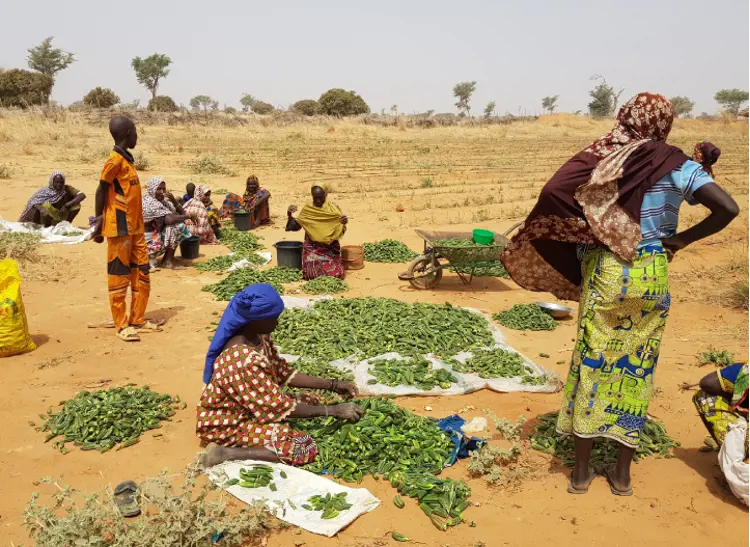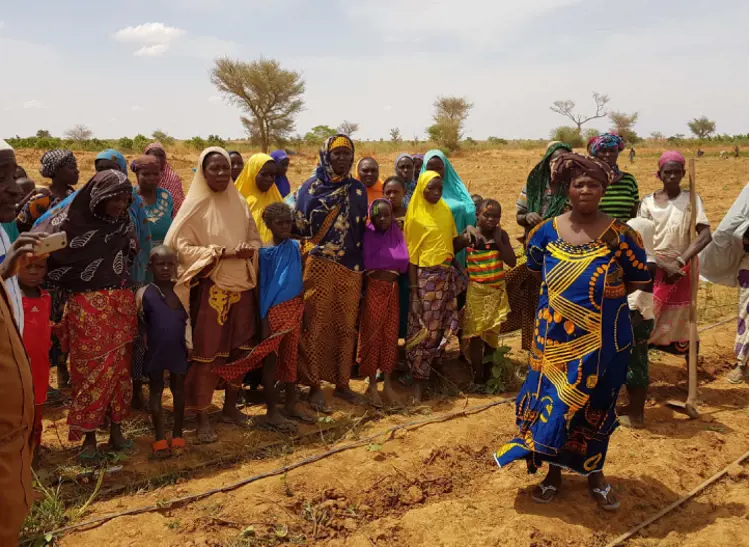Fields of Opportunity for Female Empowerment
As an agricultural engineer at Netafim, working as Project Manager with the Africa and Middle East team, I am reminded on a daily basis how technology is fundamentally changing the field of agriculture, and in doing so, helping to drive the empowerment of women. Many aspects of agriculture have traditionally been male-dominated, from ownership to expansion to marketing and sales but technological advances, combined with changing global dynamics and awareness, are slowly transforming the field both literally and figuratively, making it more accessible to women.
Leveling the Playing Field
Climate change significantly impacted rainfall and caused a shift in how we approach agriculture with sustainability as the core goal. This has created a new bottom line; countries must work toward self-sufficiency in order to ensure sustainable food security. To keep agriculture alive, farmers must improve the quality and yield of the crops while simultaneously reducing water consumption. Investment in technology is the only viable solution. I have personally witnessed how Netafim’s precision irrigation systems, enabling farmers with fields of every size to grow more with less, have successfully proven to deliver that solution.
As team project manager, my work starts the moment the contract is signed with the customer. From plotting coordinates through installation I’m responsible for making sure the job gets done, and along the route to implementation, we’re leveling the playing field.
The instruction manuals have been simplified and presented DIY-style, making them significantly easier for the farmers to follow. Our training videos now include images of women as well as men, making them relatable to all. And our teams are training both men and women in the installation, operation and maintenance of the systems, ensuring equal responsibility in the field.
Piloting Change in Niger - Where Extreme Conditions Call for Major Transformations
Niger, like much of the globe, is experiencing the effects of climate change but to an extreme. With its temperature rising 1.5 times faster than the global median and averaging 45 degrees celsius, farmers across Niger struggle to grow food in scorched, sandy soil, resulting in an unprecedented high rate of chronic malnutrition among young children.
Our team at Netafim, in conjunction with the IFC (International Finance Corporation), was privileged to set the wheels in motion for fundamental and widespread change via the Niger Irrigation Project (NIP), a pilot program intended to strengthen the country’s resilience to climate changes through the sustainable development of drip irrigation.

As part of the pilot, we installed family size drip irrigation systems, some of which were powered entirely by solar energy pumps, that drip water and nutrients to the base of the plant, significantly reducing water consumption and improving the quality of the crops. Netafim trained over 900 hundred farmers in the use of the technology, over half of them were women. The result? Greater knowledge, increased yields, higher income, more control and a sense of empowerment. I recall one of the farmers saying that being part of the project enabled her to provide her kids with healthcare and an education.
Female Empowerment from the Ground Up
The field of agriculture is open to women from the ground up. In fact, the UN Food and Agriculture Organization is investing significant resources to continue empowering female farmers, entrepreneurs and leaders, ensuring their vital role in each aspect of the field.
Precision irrigation has been an important game-changer for female farmers in particular. When using this technology, yields are no longer dictated by rainfall and buckets of water. With their loads literally lightened, women are freed up for training as leaders in other aspects of agriculture, empowering them and creating new employment opportunities.

Precision irrigation also enables the planning and forecasting of yields, necessitating comprehensive business management for agriculture, asset and risk management, finance, and projection with women building the entire strategy and leading its implementation. These knowledge areas also contribute to reducing the financial gender gap, particularly in developing countries.
With the intersection of technology, business, and farming, the opportunities for women along the whole spectrum of agriculture are varied and unlimited. And the potential to impact a reality which will reduce poverty, increase productivity, and improve food security and nutrition is great. My experience in the field has taught me that playing with dirt can be both fun and meaningful.
